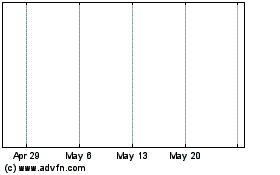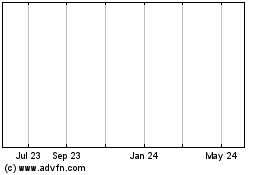The Australian government welcomes inward investment from China
and expects it to grow further in coming years but companies need
to approach policy makers before deals are agreed and investments
must maintain a market footing, an official said Thursday.
"If you talk to us early, before deals are signed, sealed and
delivered, we can point out where there may be concerns," Patrick
Colmer, head of Australia's Foreign Investment Review Board, said
in a speech to a China-Australia investment forum in Sydney.
"It is much easier to engage earlier in significant projects,"
he said.
The comments are a firm message for companies to step up their
cooperation with policy makers when considering deals and reminds
China in particular that investments in Australia need to remain
commercially driven.
The investment review board, a unit of Australia's Treasury,
assesses foreign investment proposals but the final decision on
approving such transactions is taken by Treasurer Wayne Swan.
In the past 18 months, the FIRB has reviewed 90 separate Chinese
investment proposals valued at A$34 billion.
One area of concern identified by Colmer is the need to maintain
a market-based system in Australia and he spelled out a preference
for investments that do not involve acquiring an entire company but
didn't rule out approving such takeovers.
"We are keen to see major projects maintain a listing as we
believe listings are important for the development of good sound
businesses," Colmer said.
"Our government has expressed a preference for projects that are
joint projects in various forms. We are much more comfortable when
we see investments that are below 50% for green field and below 15%
for major producers."
However, the government official added that individual
applications will be judged on their own merits.
"We do look at all investment proposals on a case by case basis,
and there are examples where we have accepted quite readily
different arrangements."
The preferred solutions are different forms of cooperation and
partnerships, while at the same time Australia needs to maintain
its position as a reliable supplier of resources to all its
customers, he said.
Among the criteria considered by FIRB in its assessments include
the investor's independence from government, although total
independence is not expected.
"We are looking for evidence it is a true commercially-focused
investment," Colmer said.
"In general, that is our experience with foreign government
investments. We haven't had significant concerns around any of
those."
Colmer was speaking as FIRB continues to mull a string of
investments, the largest of which is Yanzhou Coal Mining Co.'s
A$3.54 billion offer to acquire coal miner Felix Resources Ltd., in
what would be China's largest buyout of an Australian company to
date.
Yanzhou has already had to resubmit its application, although
Felix expects the transaction to be approved in time for a Yanzhou
shareholder vote in mid-October and by Felix shareholders in early
December.
Also being considered is a A$252 million offer by China
Non-Ferrous Metal Mining (Group) Co. to buy a majority stake in
miner Lynas Corp., which has already had to resubmit its investment
application to FIRB three times since the deal was announced on May
1.
Illustrating the Australian government's concerns, earlier
Thursday the Defence Department said it objected to an investment
by Chinese steelmaker, Wugang Australian Resources Pty Ltd., or
Wisco, in Western Plains Resources Ltd. because the company's iron
ore project is in a sensitive military testing zone.
Attracting inward flows is essential for Australia's economic
growth but foreign ownership of the country's assets needs to be
mutually beneficial, Colmer said.
"We are looking for a win-win situation," the FIRB director
said.
Controversy around investments is not unusual, though it is
important to maintain public support. "We are trying to maintain an
orderly flow of investment, while balancing a need to maintain
public support for foreign investment," he said.
Australia has experienced "waves" of investment from various
countries, including the U.K. and U.S. over recent decades, all of
which have generated controversy and which make current concerns
over China investment not unusual, the FIRB director noted.
"Generally it is something that proceeds without any due
concerns," Colmer said.
Using FIRB's own data, it's likely that China was the third
largest investor in Australia in the 2008-2009 fiscal year, after
the U.S. and U.K.
"It's probably going to go higher than that in future years,"
Colmer said.
"We do welcome Chinese investment. The government is keen to see
that continue. The government is also keen to maintain Australia's
national interest."
Also, companies should stop attempting to heavy hand the
government through legal interventions as it's not effective, he
said.
"We are here, we are happy to work with companies, talk with us
early, don't turn it into a legal (battle) and deal with us the way
we like to deal with you, which is in confidence," Colmer said.
Meanwhile, China's Ambassador to Australia said the detention of
Rio Tinto Ltd. employee Stern Hu will not damage relations between
both countries and said it is a one-time, isolated incident.
"It will not affect any relationship between China and
Australia," Ambassador Zhang Junsai told reporters.
-By Enda Curran, Dow Jones Newswires;
61-2-8272-4687; enda.curran@dowjones.com
(David Winning in Sydney and Alex Wilson in Melbourne
contributed to this article)
Western Plains Resources (ASX:WPG)
Historical Stock Chart
From Dec 2024 to Jan 2025

Western Plains Resources (ASX:WPG)
Historical Stock Chart
From Jan 2024 to Jan 2025
